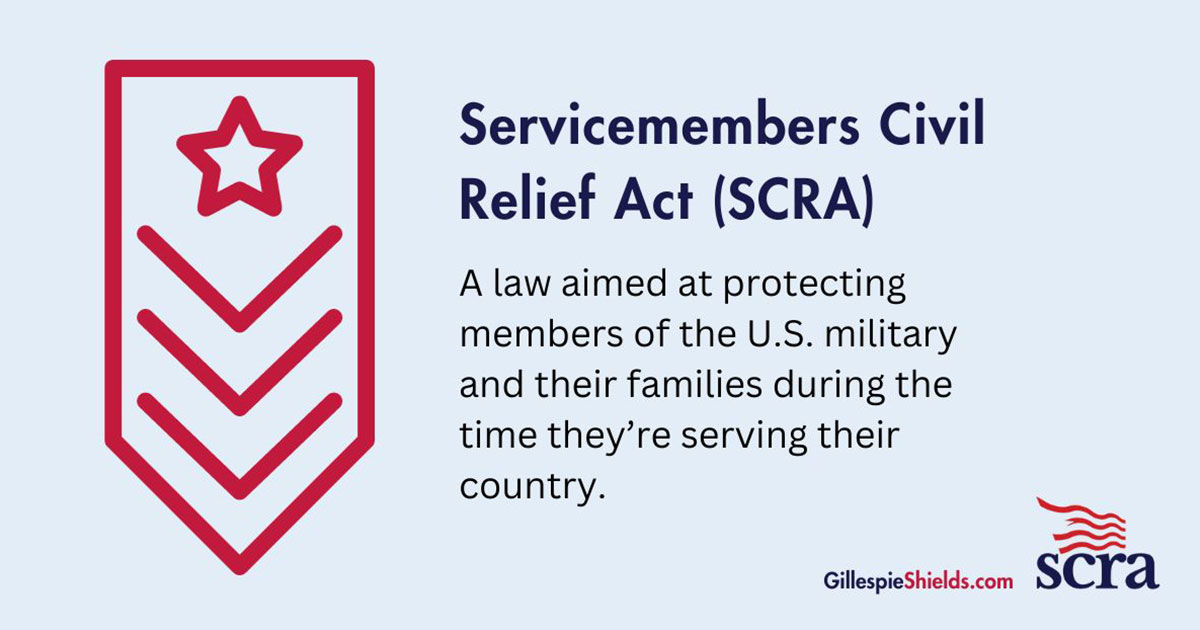
November is Military Family Month and is a time for us to honor not only the service our active duty military and veterans bestow on our great nation so that we can remain free but also the substantial sacrifices the families of our military members make in the process. Military members embody an archetype of resilience, strength, and courage that is necessary to serve in the armed forces and benefit our country in all that they do. Their family members are a diverse, steadfast group of individuals – many of them children – who have the unique challenge of navigating the many hardships of military life.
In 1996, Military Family Month was created to remind us to extend care and support to our military families and their children. It is their mothers, fathers, grandparents, sisters, brothers, aunts, and uncles who sustain the fighting force that defends our freedom. These families relocate on average once every three years without protest, trade time with their loved ones for our security without complaint, and live knowing the possibility of their loved one being injured or losing their life while on active duty.
Let us not forget what we can do to strengthen, support, and encourage the safety, health, and well-being of our nation’s military families and their communities year-round. We here at Gillespie, Shields & Taylor acknowledge the unique challenges military families face and extend our gratitude for their sacrifices. Perhaps most significantly, we’d like to extend our compassion and our care when it comes to the legal issues they face.
Military Divorce
A common legal need for all populations, including members of the armed forces, is divorce. More specifically, many families affiliated with the military experience military divorce. While the result is the same as it is with a civilian divorce, the process for military members involved in divorce proceedings presents some unique challenges.
For instance, when a military member is deployed, it can be difficult to serve the court documents necessary to initiate and continue a divorce. Because it is sometimes difficult for deployed military members to respond once they are served, military divorce law encompasses special statutes at both the state and federal levels. These typically allow for time extensions for responding to divorce papers and other concessions enacted to protect the integrity of the legal system and maintain fairness and justice for those affected by such circumstances.
There are some distinct areas of divorce law that affect military members, specifically. Some of the most significant challenges for military members seeking a divorce, as well as the spouses of military members seeking a divorce, are described below.
Jurisdiction
Members of the military move frequently as the needs of the military demand, and military members may be stationed in various states or countries where their spouses do not live. This poses a problem for many individuals seeking a divorce because they are unsure where they should file for divorce. In addition, states differ regarding their residency requirements for divorce and family law issues.
Arizona’s residency requirements for divorce filings require one spouse to have lived in Arizona as an Arizona resident for no less than 90 days before filing for divorce. Any active duty military member who has been stationed in Arizona for a continuous 90-day period is considered a resident of Arizona and may file for divorce from within the state.
In addition, when considering a military divorce, individuals should be aware that the state in which a service member claims legal residency retains the power to divide the member’s military pension amid divorce proceedings.
The Servicemembers Civil Relief Act

As mentioned, another common issue regarding military divorce is the difficulty presented by separate geographic locations when it comes to serving divorce documents, responding appropriately, and appearing in family court. To bridge the gap between the demands of military duty and personal court appearances, the Servicemembers Civil Relief Act (SCRA) protects active-duty personnel from the negative consequences of certain civil proceedings, including divorce. The SCRA also protects service members for the first 90 days upon return from deployment, preventing them from the need to respond to court proceedings or attend hearings.
In general, the SCRA allows for a postponement of civil court proceedings (known as a stay) if the service member has a valid reason for not being able to attend, such as deployment. Military members are automatically entitled to this stay in divorce proceedings as long as the requirements are met.
These requirements include that the active-duty member had been served with papers notifying them of the court proceedings, as well as an application in writing explaining how their military service affects their ability to appear and the date they will be available to appear. The application must also include a statement from the military service member’s commander that leave is not feasible or is otherwise unavailable to address legal issues.
The initial 90-day stay is granted automatically, but additional requests thereafter may be subject to denial, as the member may be expected to use a portion of their 30-day annual leave allotment, even if they are stationed overseas. There are other alternatives to appearing, such as appointing an attorney to represent the service member and/or setting up a video teleconference or phone-based appearance.
Anyone who has been served with Arizona divorce papers while stationed elsewhere should seek legal counsel within the state where the legal proceedings are based. In order to take full advantage of this benefit and ensure your case is handled in their best interest, seek military divorce lawyers near Mesa, AZ, who can act on your behalf if you can’t be present.
Overseas Divorce
Even with the SCRA in place, filing for divorce while stationed overseas is often not recommended because it may not be recognized by US courts. Still, it is important for military members to know that the government will cover expenses to relocate their family members and their property stateside in the event of a divorce while overseas. For military divorces in which overseas property (such as a house) is owned as a marital asset, it is advisable to consult with a Phoenix military divorce attorney regarding your case.
Remote Service
In some cases, it may be difficult to serve divorce paperwork to service members stationed in remote locations or serving overseas/at sea. There are also instances when the location of an active-duty armed forces member is undisclosed, even to a spouse. Filing a petition for divorce must be followed by the act of serving the other party with papers, no matter how difficult it proves to be. If you reside in Arizona while your spouse is on active duty and difficult to reach, it is typically advisable to assemble the appropriate paperwork with the help of a skilled Arizona divorce attorney and schedule filing as soon as they become accessible.
Division of Property and the Uniformed Services Former Spouses’ Protection Act
Another area where military service members’ divorce cases are not like typical divorce cases is when it comes to dividing assets. Military pensions are a heated topic of debate, but under the Uniformed Services Former Spouses’ Protection Act, spouses of armed forces members are entitled to payments from the Defense Finance & Accounting Service equal to a portion of their partner’s military pension (up to 50%) under conditions outlined in the act. These conditions include that a spouse must have been married to the service member for at least ten years of their military service. This is often referred to as the 10/10 law because of the overlapping 10-year requirement.
The 10/10 law only refers to retirement pensions and does not apply to alimony support or child support. However, under this act, former spouses can keep access to military health care benefits, access to commissary, and retain a military ID if they were married to the military service member for at least 20 years, during which 20 years of creditable military service was accumulated by the active duty spouse. This is referred to as the 20/20/15 law. The 15 component is significant, indicating that if the marriage overlapped with 15 years of service, those former spouses are entitled to benefits, but to a lesser extent than the full benefits extended to spouses who have accumulated 20 years of overlapping service and marriage.
Child Custody and Visitation
Because military families are relocated quite frequently, when these families go through divorce, it can be hard to come to agreeable terms regarding child custody and parental visitation schedules. When divorce occurs, if the non-military spouse is the custodial parent, they often choose to move separately from their active duty ex-spouse, who must move according to the needs of the military. Unfortunately, this can make custody and visitation for the military spouse more difficult than in a civilian divorce. On the other side of the coin, if the active duty spouse becomes the custodial parent, arrangements for the child to be with the non-custodial parent during times the service member is deployed will need to be made.
Consulting with a Phoenix military divorce attorney can ensure the provision of the most accurate legal advice to divorcing military members and their civilian spouses. An experienced attorney will consider factors such as deployment, permanent change of station, temporary duty, military schools, and other unique needs to help those involved in a military divorce create a parenting plan that considers the child’s best interest.
How a Military Divorce Attorney Can Help

If you are considering hiring an Arizona military divorce attorney to handle your military divorce, below are some specific ways you may benefit from professional legal representation.
Explanation of Regulations
Military regulations, like most laws, are often complex and written to be general enough to cover a range of situations and variables. As a result, it can be hard to understand how these laws apply to an individual case. A military divorce attorney can explain the laws and navigate the legal system and their client’s best interests.
Expedient Property Division
A military divorce lawyer knows how to inventory assets and delineate which party is entitled to what benefits and assets according to military divorce law as well as Arizona community property laws. An attorney can help parties secure the military benefits, property, and other financial assets they are entitled to in the divorce.
Negotiation and Mediation
A military lawyer can help to facilitate the negotiation of a settlement between parties when they disagree on terms. These negotiations require a unique understanding of military life, its culture, and the sacrifices both parties in a marriage made in the military family, whether their client is an active duty service member or their spouse. Similarly, participating in mediation with a neutral third party can help both spouses reach an agreeable divorce settlement without the need for extensive litigation.
Guidance and Support
Among the most beneficial aspects a military divorce lawyer can provide a service member or their spouse in the event of a divorce are support and guidance. Whether you’ve served in the military or have taken on the role of a military spouse, your life has presented some challenges that are out of the ordinary. It’s hard enough to maneuver through life as a military family, and getting divorced is no exception. A military divorce can be especially emotionally taxing on everyone involved as you wade through the various requirements and regulations.
A compassionate and knowledgeable attorney can make a positive impact on the entire military family, primarily because they understand the stress and strains these families are experiencing. Having an informed voice of reason and guidance throughout the divorce process can make all the difference in navigating divorce with the least amount of stress on the family possible. Not only can an attorney be a legal advisor, but the right military divorce attorney can serve as an experienced and influential advocate for the military family, as well.
Your Arizona Military Divorce Firm

Gillespie, Shields & Taylor is an Arizona law firm uniquely positioned to help you navigate the complexities of military divorce. Our firm is home to some of the most reputable military divorce lawyers Phoenix and Mesa has to offer. As a result, you can expect formidable representation and compassionate care as you dissolve your military marriage.
Gillespie, Shields & Taylor takes pride in our commitment to supporting military families and providing them with the legal services they need, not only in the month of November but throughout the year. Our respect and appreciation will be apparent in the loyal service our legal team extends to military service members and their families. Just as you and your loved ones have served our country in its time of need, please allow us to serve you in yours. To learn more about our skilled legal services from family lawyers who are well-versed in the laws that apply to military divorce in Arizona, contact Gillespie, Shields & Taylor to request a consultation.
Resources:
- National Child Traumatic Stress Network. (2023). Military Family Month. Retrieved November 21, 2023, from https://www.nctsn.org/resources/public-awareness/military-family-month
- Military OneSource. (2023). Rights and Benefits of Divorced Spouses in the Military. Retrieved November 21, 2023, from https://www.militaryonesource.mil/relationships/separation-divorce/rights-and-benefits-of-divorced-spouses-in-the-military/
- Military OneSource. (2023). Servicemembers Civil Relief Act. Retrieved November 21, 2023, from https://www.militaryonesource.mil/financial-legal/personal-finance/servicemembers-civil-relief-act/
- Military Divorce Guide. (2023). Servicemembers Civil Relief Act. Retrieved November 21, 2023, from https://www.military-divorce-guide.com/protection-military-members/servicemembers-civil-relief-act
- Soldier for Life. (2023). USFSPA. Retrieved November 21, 2023, from https://soldierforlife.army.mil/Documents/static/Post/USFSPA.pdf

Founder, Owner, and Family Law Attorney
Those who know DeeAn Gillespie Strub can describe her in three words: caring, courageous, and competent. Growing up as the oldest of nine children, DeeAn quickly learned leadership and resourcefulness. With both parents as educators, she also acquired a love of learning, and from her mathematician, father learned to think analytically. Following in her parents’ footsteps, her first career step was to become a teacher. It was not long before she determined she could use her teaching skills most effectively in a different arena: the law. She wanted to make a difference for people.

